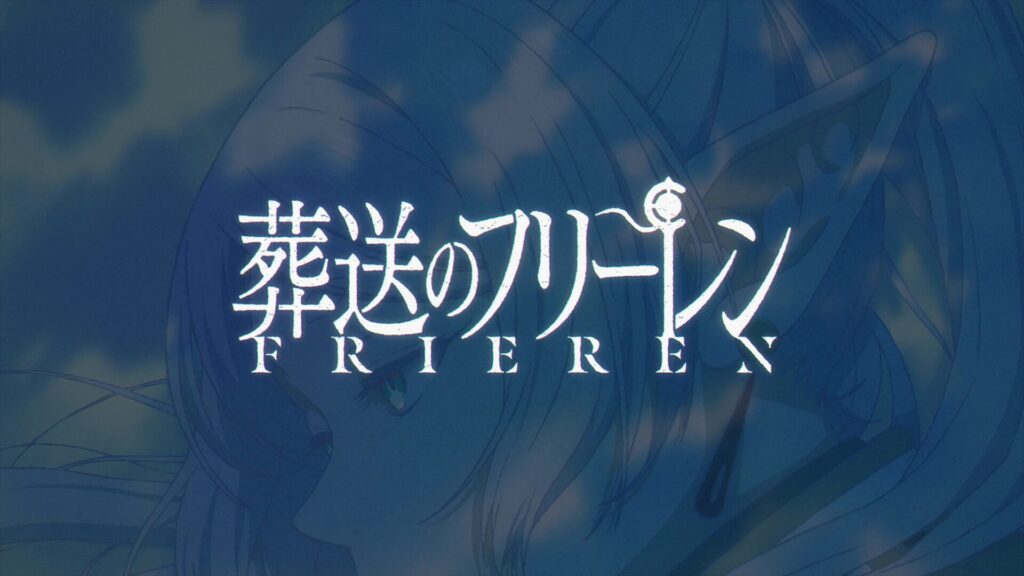
Quote #6 – A Mistake You’ll Regret Someday
こいつが成長すれば、千年だろうがこの場所を守り続ける。その頃には先生死んでるでしょ。だがお前は違う。お前はいつか大きな過ちを犯し、人を知りたいと考えるようになる。
This little sapling’ll grow. In a thousand years, it’ll still be protecting this place. Probably so, but you’ll be dead by then. Well, sure, but you won’t be. Someday down the line, you’re going to make a horrid mistake, and you’ll wish you had gotten to know the people around you.
こいつが せいちょうすれば、 せんねん だろうが この ばしょを まもりつづける
そのころには せんせい しんでる でしょ
だが おまえは ちがう
おまえは いつか おおきな あやまちを おかし、 ひとを しりたい と かんがえる ように なる
koitsu ga seichou sureba, sennen darou ga kono basho o mamoritsudzukeru
sono koro ni wa sensei shinderu desho
da ga omae wa chigau
omae wa itsuka ookina ayamachi o okashi, hito o shiritai to kangaeru you ni naru
🌟 Waku Waku Word Dive
● せいちょう(成長) /sei.chou/ – Noun
Meaning: Growth; development
● まもりつづける(守り続ける) /ma.mo.ri.tsu.zu.ke.ru/ – Verb
Meaning: To continue protecting
● しぬ(死ぬ) /shi.nu/ – Verb
Meaning: To die
● あやまち(過ち) /a.ya.ma.chi/ – Noun
Meaning: Mistake; error
● おかす(犯す) /o.ka.su/ – Verb
Meaning: To commit (a crime or mistake)
● かんがえる(考える) /ka.n.ga.e.ru/ – Verb
Meaning: To think; to consider
📘 Mini Grammar Boost
~だろうが
Ex: 千年(せんねん) だろうが
Tip: Means “even if” or “regardless of” – emphasizes determination or persistence
~ようになる
Ex: 考(かんが)える ように なる
Tip: Expresses a change over time – “come to think that…”
~お前は違う
Ex: お前(まえ)は 違(ちが)う
Tip: Strong contrast – “you’re different” – often highlights a meaningful distinction
🔀 Slash Reading – Japanese / English
こいつが 成長(せいちょう)すれば、 千年(せんねん) だろうが この 場所(ばしょ)を 守(まも)り続(つづ)ける
This little sapling’ll grow. In a thousand years, it’ll still be protecting this place.
その頃(ころ)には 先生(せんせい) 死(し)んでる でしょ
Probably so, but you’ll be dead by then.
だが お前(まえ)は 違(ちが)う
Well, sure, but you won’t be.
お前(まえ)は いつか 大(おお)きな 過(あやま)ちを 犯(おか)し、 人(ひと)を 知(し)りたい と 考(かんが)える ように なる
Someday down the line, you’re going to make a horrid mistake, and you’ll wish you had gotten to know the people around you.
Quote #7 – The Page Already Open
死者(ししゃ)との 対話(たいわ)についての 記述(きじゅつ)は あるか?
ご 丁寧(ていねい)に その ページが 開(ひら)かれている。
千年(せんねん)も 前(まえ)から 私(わたし)が ここに 来(く)ることが わかっていたのか。
相変(あいか)わらず 嫌味(いやみ)な 奴(やつ)だ。
Does it say anything about speaking with the dead?It was already open to that very page.So she knew a thousand years ago that I would come back here someday.What an unpleasant woman.
ししゃ との たいわ についての きじゅつ は あるか?
ご ていねい に その ぺーじ が ひらかれて いる。
せんねん も まえ から わたし が ここ に くる こと が わかって いた のか。
あいかわらず いやみ な やつ だ。
shisha to no taiwa ni tsuite no kijutsu wa aru ka?
go teinei ni sono pēji ga hirakarete iru.
sennen mo mae kara watashi ga koko ni kuru koto ga wakatte ita no ka.
aikawarazu iyami na yatsu da.
🌟 Waku Waku Word Dive
● たいわ(対話) /tai.wa/ – Noun
Meaning: Dialogue; conversation
● きじゅつ(記述) /ki.ju.tsu/ – Noun
Meaning: Description; written account
● ひらく(開く) /hi.ra.ku/ – Verb
Meaning: To open (a book, etc.)
● せんねん(千年) /sen.nen/ – Noun
Meaning: A thousand years
● いやみ(嫌味) /i.ya.mi/ – Noun
Meaning: Sarcasm; unpleasant remark
● やつ(奴) /ya.tsu/ – Noun (casual)
Meaning: Guy; fellow (can be rude or casual)
📘 Mini Grammar Boost
~についての [noun]
Ex: 対話(たいわ)についての 記述(きじゅつ)
Tip: Means “a description about…” – used when specifying the topic of a statement
~から ~ことがわかっていた
Ex: 前(まえ)から 来(く)ることが わかっていた
Tip: Means “had known since before that [something would happen]”
相変わらず ~だ
Ex: 相変(あいか)わらず 嫌味(いやみ)な 奴(やつ)だ
Tip: “Still as ~ as ever” – used to express unchanged habits or traits
🔀 Slash Reading – Japanese / English
死者(ししゃ)との 対話(たいわ)についての 記述(きじゅつ)は あるか?
Does it say anything about speaking with the dead?
ご 丁寧(ていねい)に その ページが 開(ひら)かれている。
It was already open to that very page.
千年(せんねん)も 前(まえ)から 私(わたし)が ここに 来(く)ることが わかっていたのか。
So she knew a thousand years ago that I would come back here someday.
相変(あいか)わらず 嫌味(いやみ)な 奴(やつ)だ。
What an unpleasant woman.
Quote #8 – You Must Speak with Himmel
フリーレン、オレオールを 探(さが)して ヒンメルと 話(はな)すんだ。
俺(おれ)を 手伝(てつだ)ってくれるんだろ?
悪知恵(わるぢえ)を つけたね、アイゼン。
ハイターの おかげだな。
わかったよ、どうせ 当(あ)ての ない 旅(たび)だ。
Frieren… you must go to Aureole and speak with Himmel.You said you would help me, did you not?You’ve picked up a few tricks.Where? I think we both know the answer to that.I’ll do it then. We needed a destination.
ふりーれん、 おれおーる を さがして ひんめる と はなすんだ。
おれ を てつだって くれるんだろ?
わるぢえ を つけたね、 あいぜん。
はいたー の おかげ だな。
わかったよ、 どうせ あて の ない たび だ。
furīren, Oreōru o sagashite Hinmeru to hanasun da.
ore o tetsudatte kurerun daro?
warujie o tsuketa ne, Aizen.
Haitā no okage da na.
wakatta yo, douse ate no nai tabi da.
🌟 Waku Waku Word Dive
● さがす(探す) /sa.ga.su/ – Verb
Meaning: To search for; to look for
● てつだう(手伝う) /te.tsu.da.u/ – Verb
Meaning: To help; to assist
● わるぢえ(悪知恵) /wa.ru.ji.e/ – Noun
Meaning: Cunning; crafty idea
● おかげ /o.ka.ge/ – Noun
Meaning: Thanks to; due to someone’s help
● あて(当て) /a.te/ – Noun
Meaning: A goal; an aim; a plan
● たび(旅) /ta.bi/ – Noun
Meaning: Journey; travel
📘 Mini Grammar Boost
~んだ(のだ)
Ex: 話(はな)すんだ
Tip: Explanatory tone – used to give a reason or emphasize intention
~てくれるんだろ?
Ex: 手伝(てつだ)ってくれるんだろ?
Tip: Softened confirmation – “You’re going to help me, right?”
どうせ ~
Ex: どうせ 当(あ)てのない 旅(たび)だ
Tip: Means “anyway” or “after all” – used to express resignation or inevitability
🔀 Slash Reading – Japanese / English
フリーレン、 オレオールを 探(さが)して ヒンメルと 話(はな)すんだ。
Frieren… you must go to Aureole and speak with Himmel.
俺(おれ)を 手伝(てつだ)って くれるんだろ?
You said you would help me, did you not?
悪知恵(わるぢえ)を つけたね、 アイゼン。
You’ve picked up a few tricks.
ハイターの おかげ だな。
Where? I think we both know the answer to that.
わかったよ、 どうせ 当(あ)ての ない 旅(たび)だ。
I’ll do it then. We needed a destination.
Quote #9 – A Blink in Her Lifespan
時間(じかん)の 無駄(むだ)だからね。
いろいろ 教(おし)えても すぐ 死(し)んじゃうでしょ。
フリーレン、 人(ひと)との 関係(かんけい)は そういうものじゃない。
そういうものだよ。
みんなとの 冒険(ぼうけん)だって、 私(わたし)の 人生(じんせい)の 100分(ひゃくぶん)の1にも 満(み)たない。
I fear it would be a waste of time.No matter how much I teach them, they’ll surely die.How cheery. That’s not how relationships work.That’s how they work for me.Just consider our adventure. It’s taken up less than one one-hundredth of my life.
じかん の むだ だからね。
いろいろ おしえても すぐ しんじゃう でしょ。
ふりーれん、 ひと との かんけい は そういう もの じゃない。
そういう もの だよ。
みんな との ぼうけん だって、 わたし の じんせい の ひゃくぶん の いち にも みたない。
jikan no muda dakara ne.
iroiro oshiete mo sugu shinjau desho.
Furīren, hito to no kankei wa sou iu mono ja nai.
sou iu mono da yo.
minna to no bouken datte, watashi no jinsei no hyakubun no ichi ni mo mitanai.
🌟 Waku Waku Word Dive
● むだ(無駄) /mu.da/ – Noun
Meaning: Waste; uselessness
● おしえる(教える) /o.shi.e.ru/ – Verb
Meaning: To teach; to instruct
● しんじゃう(死んじゃう) /shi.n.ja.u/ – Verb (casual)
Meaning: To die (casual, softened form of 死ぬ)
● かんけい(関係) /kan.kei/ – Noun
Meaning: Relationship; connection
● じんせい(人生) /jin.sei/ – Noun
Meaning: Life; human life
● みたない(満たない) /mi.ta.na.i/ – Verb
Meaning: To not reach; to be less than
📘 Mini Grammar Boost
~ても
Ex: 教(おし)えても すぐ 死(し)んじゃう
Tip: “Even if…” – shows a condition with a result that follows anyway
~じゃない
Ex: そういうものじゃない
Tip: Negative explanatory form – “It’s not like that.”
~だって
Ex: 冒険(ぼうけん)だって
Tip: Adds emphasis or inclusion – “Even our adventure…”
~にも満たない
Ex: 100分(ひゃくぶん)の1にも 満(み)たない
Tip: “Doesn’t even reach [amount]” – used to show something is very small or short
🔀 Slash Reading – Japanese / English
時間(じかん)の 無駄(むだ)だからね。
I fear it would be a waste of time.
いろいろ 教(おし)えても すぐ 死(し)んじゃうでしょ。
No matter how much I teach them, they’ll surely die.
フリーレン、 人(ひと)との 関係(かんけい)は そういうものじゃない。
How cheery. That’s not how relationships work.
そういうものだよ。
That’s how they work for me.
みんなとの 冒険(ぼうけん)だって、 私(わたし)の 人生(じんせい)の 100分(ひゃくぶん)の1にも 満(み)たない。
Just consider our adventure. It’s taken up less than one one-hundredth of my life.
Quote #10 – Just Another Ten-Year Adventure
すまんな、 長(なが)い 旅路(たびじ)に なる。
俺(おれ)たちは 10年(じゅうねん)かかった。
そうか、 ヒンメル様(さま)たちが 魔王城(まおうじょう)を 目指(めざ)した 道(みち)のりと 同(おな)じ なんですね。
そうだね。 たった 10年(じゅうねん)の 冒険(ぼうけん)だよ。
Forgive me. You have a long journey ahead.It took the four of us ten years.I see. So, we’ll be following the same route you took to the Demon King’s castle on your first journey.That we will. Another brief, ten-year adventure.
すまんな、 ながい たびじ に なる。
おれたちは じゅうねん かかった。
そうか、 ひんめるさま たち が まおうじょう を めざした みちのり と おなじ なん です ね。
そうだね。 たった じゅうねん の ぼうけん だよ。
suman na, nagai tabiji ni naru.
oretachi wa juunen kakatta.
sou ka, Hinmeru-sama tachi ga maoujou o mezashita michinori to onaji nan desu ne.
sou da ne. tatta juunen no bouken da yo.
🌟 Waku Waku Word Dive
● たびじ(旅路) /ta.bi.ji/ – Noun
Meaning: Journey; travel path
● かかる(かかる) /ka.ka.ru/ – Verb
Meaning: To take (time or money)
● めざす(目指す) /me.za.su/ – Verb
Meaning: To aim for; to head toward
● みちのり(道のり) /mi.chi.no.ri/ – Noun
Meaning: Route; journey distance
● たった /tat.ta/ – Adverb
Meaning: Only; just
● ぼうけん(冒険) /bou.ken/ – Noun
Meaning: Adventure
📘 Mini Grammar Boost
~になる
Ex: 長(なが)い 旅路(たびじ)に なる
Means: “To become a long journey” — used for describing change or result
~たち
Ex: ヒンメル様(さま)たち
Means: “…and others” — pluralizing people
~と同じ(おなじ)
Ex: 道(みち)のりと 同(おな)じ
Means: “Same as…” — used for comparisons
~たった
Ex: たった10年(じゅうねん)
Adds emphasis on how little something is — “just,” “only”
🔀 Slash Reading – Japanese / English
すまんな、 長(なが)い 旅路(たびじ)に なる。
Forgive me. You have a long journey ahead.
俺(おれ)たちは 10年(じゅうねん)かかった。
It took the four of us ten years.
そうか、 ヒンメル様(さま)たちが 魔王城(まおうじょう)を 目指(めざ)した 道(みち)のりと 同(おな)じ なんですね。
I see. So, we’ll be following the same route you took to the Demon King’s castle on your first journey.
そうだね。 たった 10年(じゅうねん)の 冒険(ぼうけん)だよ。
That we will. Another brief, ten-year adventure.
🟦 Remembering the Past, Searching for the Soul
フリーレンは ふたたび 北(きた)を めざします。
Frieren sets her sights on the North once more.
目標(もくひょう)は ヒンメルと 話(はな)す ための 旅(たび)です。
Her goal is a journey to speak with Himmel again.
それは とても むずかしい 魔法(まほう)です。
It’s a magic spell so difficult, it borders on legend.
でも 昔(むかし)の 仲間(なかま)たちの ことを もっと 知(し)りたいと 思(おも)ったのです。
But she wants to learn more about her old friends.
その気持(きも)ちは 30年(さんじゅうねん)たっても 変(か)わりませんでした。
Even after 30 years, that feeling hasn’t changed.
新年祭(しんねんさい)の 日の出(ひので)も 見(み)る ことが できました。
She even managed to see the sunrise during the New Year Festival.
フェルンの 笑顔(えがお)に 助(たす)けられて。
With Fern’s smile guiding her along.
🌟 Key Words & Phrases
● ふたたび(再び) /fu.ta.ta.bi/ – Adverb
Meaning: Again; once more
● めざす(目指す) /me.za.su/ – Verb
Meaning: To aim for; to head toward
● むずかしい(難しい) /mu.zu.ka.shi.i/ – Adjective
Meaning: Difficult; hard
● かわらない(変わらない) /ka.wa.ra.na.i/ – Verb
Meaning: To not change; remain the same
● しんねんさい(新年祭) /shin.nen.sai/ – Noun
Meaning: New Year’s Festival
● えがお(笑顔) /e.ga.o/ – Noun
Meaning: Smile; smiling face


